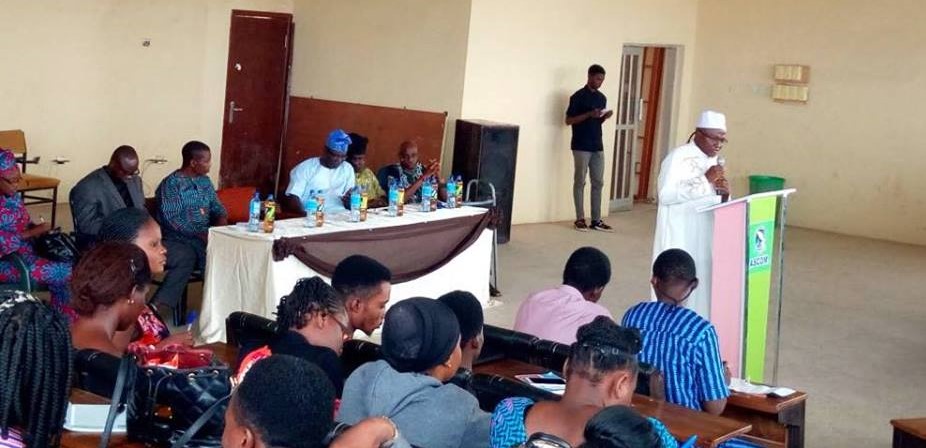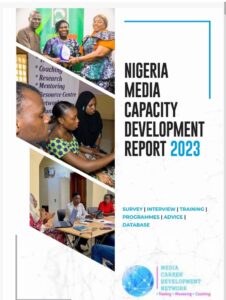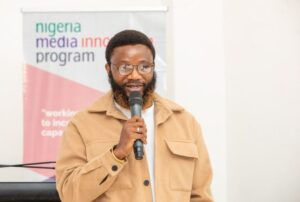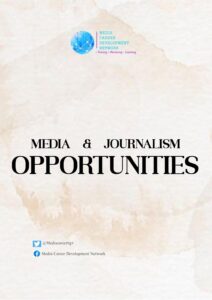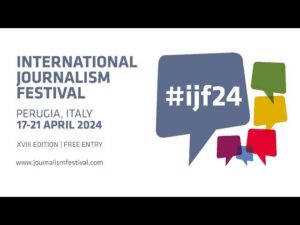A conversation between Tunde Oladunjoye and Mass Communication Students of Olabisi Onabanjo University, Ago Iwoye, Ogun State at the 2018 Press Week on Friday, May 25, 2018 on the role of the media in inculcating right values in youths
PROTOCOLS
I was on my way from Osogbo this morning to attend a Children’s Day programme at Ijebu East Central LCDA Ojowo, when, at 7.48 am, I got a message from a cherished senior colleague, a journalist of repute, a mentor, a role model and molder of the youth, Mr. Lekan Otufodunrin, who I was lucky to have met in my journalism career, to stand in for him here!
While he was of the opinion that you are lucky to have me here today, I told him that you are lucky to have invited someone with his kind of commitment. Another speaker would have simply sent a terse text that he could not make it for “some reasons”!
While I am standing in for Mr. Otufodunrin here today, let me say however, that the speech and position here are entirely my views. I actually started to put down my thoughts for this conversation at 8.40 am this morning. What does that tell you? It is that, as journalists and communicators, you must adopt the Boys Scouts’ motto: BE PREPARED.
Now to the topic: THE ROLE OF THE MEDIA IN INCULCATING RIGHT VALUES IN THE YOUTH, I will be very interactive to a large extent, since I am conscious of the fact that I am addressing communicators.
Let us start by breaking it down: What is media in Communication?
Jayasree Roy in Role of Media in Our Society (2015), posited that: “The word ‘media’ is derived from the word medium, signifying mode or carrier. Media is intended to reach and address a large target group or audience. The word was first used in respect of books and newspapers i.e. print media and with the advent of technology, media now encompasses television, movies, radio and internet.”
Of course, we all know the often repeated basic functions of the media: to inform, educate, entertain and enlighten.
However, the Media of today, as rightly observed by Roy, is playing an outstanding role in creating and shaping of public opinion and strengthening of society. “Media is the sword arm of democracy. Media acts as watchdog to protect public interest against malpractice and create public awareness” (2015) .
Kanika and Jaspreet Kaur, in Media As An Agent of Inculcatıng Values: A Truth or A Myth?, posited that the media “influence the development and transformation of values and beliefs of people in a variety of ways like social development, tolerance, positive attitude towards others’ culture. They also contribute to the enhancement of knowledge, language and vocabulary and influence a major part of daily life.”
What I am driving at here is that the role of the media is expanding beyond the traditional expectations of information, education, entertainment and enlightenment.
As a matter of fact, the “added functions” of the media is not a new development. The Nigerian media, to its credit, has its roots in anti-colonial nationalist struggle that predated the flag independence of October 1,1960.
Nigerian journalists were in the forefront of the independence struggle that gave this nation her flag-independence in 1960:
JOURNALISTS IN THE STRUGGLE FOR INDEPENDENCE FOR NIGERIA (1948-1959):
Herbert Macaulay, Kitoye Ajasa, Nnamdi Azikiwe, Ernest Sesei Ikoli, Mbonu Ojike (aka, “Boycot the boycottables”), Kolawole Balogun, M.C.K. Ajuluchukwu, Mokwugo Okoye, Babatunde Jose, Abiodun Aloba (aka, Ebenezer William), Peter Enahoro (aka Peter Pan), Sa’ad Zungur, Abubakar Zukogi, Raji Abdallah, Osita Agwuna, Lateef Jakande, Olabisi Onabanjo (Aiyekooto), Fred Anyiam, Smart Ebbi, etc.
NEWSPAPERS THAT FOUGHT FOR NIGERIA’S FREEDOM (1890-1959): West African Pilot (founded, 1937 by Dr. Nnamdi Azikiwe), Daily Times, (founded in 1926 by Sir Adeyemo Alakija), Nigerian Tribune (fouded in 1949 by Obafemi Awolowo), Daily Service (founded 1952 by Amalgamated Press), Daily Express, The Comet, South Defender, Lagos Daily News (1922, by Herbert Macaulay), Lagos Weekly Record (1890-1930, by John Jackson – father, and & Horatio Jackson – son).
When Nigeria became confronted with unmitigated military brigandage that almost erased the little post-independence gains, and for which we are yet to fully recover from, it was again the media that struck the draconian bull of the military in the eyes. I stand to be corrected that the media and its practitioners bore the harshest brunt of the prodemocracy struggle. All other activists and professionals involved in the prodemocracy struggle of 1983 to 1999 still relied on and used the mass media.
JOURNALISTS IN THE STRUGGLE FOR PRO-DEMOCRACY FOR NIGERIA (1983-1999):
Remi Oyo, Bayo Onanuga, Bagauda kalto, Babafemi Ojudu, Dapo Olorunyomi, Ray Ekpu, Seye Kehinde, Kunle Ajibade, Nosa Igiebor, Soji Omotunde, Osa Director, Niran Malaolu, Richard Akinola, Tunde Akanni, Dare Babarinsa, Muyiwa Adekeye, Muka Popoola, Ladi Lawal, Lanre Arogundade, Gbolahan Gbadamosi, Edetan Ojo, Funke Fadugba, Felix Eriakhi, Tunde Oladepo, Bamidele Johnson, Yemi Olowolabi, and many others, including other non-journalists who were working in the media organizations.
MASS MEDIA THAT FOUGHT FOR NIGERIA’S PRO-DEMOCRACY STRUGGLE (1983-1999)
The Punch, The Concord Group, Daily Sketch, The Guardian, Vanguard, The News, Newswatch, Tell, Tempo, Dateline, AM News, PM News, Razor, Vanguard, BCOS, OGBC 2FM, and others.
IMPORTANCE OF THE MEDIA
The media is so important that it is tagged the “fourth estate of the realm” after, the legislature, executive, and the judiciary. The media is expected to hold the government accountable to the governed. Though, Tony Momoh strongly canvassed that where the “freedom of the press” appeared in the Nigerian Constitution, it is only for “reading convenience” and not an outright declaration of the “ freedom of the press” that is justiciable.
What are the right values? To me it would include patriotism, nationalism, non-violence, honesty, dignity of labour, decency, positive attitudes, exemplary leadership, sportsmanship, and further on. At this point, we may want to ask: is it the society that influences the media or the media that influence the society? Is it the media that influence the the youth or the youth that influence the media? Does the society reflects the youths or it is the youth that reflect the society?
It is said elsewhere that people deserve the type of the leaders that they get; can we then say that the society deserves the youth it gets?
Can’t we then say that everybody is involved and affected by present deterioration of values in our society with the government being the worst culprit? How do we maintain, promote and inculcate values in the others in the absence of quality education, prevalent youth unemployment, mindless looting in private and public offices, lavish celebration of ill-gotten wealth, lack of equal access to public facilities, utilities and even justice?
How did we get here? Today, only about five States among the 36 States in Nigeria are solvent. Only two or three of them can survive without federal allocations. Well, you are in Ogun State and happily, Ogun State is one of them!
The Vice President, Professor Yemi Osinbajo, recently, in his lecture titled Financial viability: Why states must think, plan as countries, lamented the present state of our socio-economic degradation. Hear him:
“The Western region is what today constitutes Oyo, Ogun, Ondo, Ekiti, Osun, parts of Kwara and Kogi, parts of Edo and Delta; Lagos, as far as Jibowu, some parts of Ikeja and Agege. The six-year period of the Awolowo government is often cited as one of the most progressive of any government in the developing world.
Some of the major accomplishments of that government include the University of Ife (now Obafemi Awolowo University); the 26-storey Cocoa House, Ibadan, then, of course, an architectural wonder; Western Nigeria Television Authority, the first in Africa; the Ikeja industrial estate, several farm settlements, the Airport Hotel, Ikeja, several other industrial establishments – Oodua Textile Industries, Ado Ekiti, Okitipupa Oil Palm Mills, Oluwa Glass in Ifon, the ceramics industry there, Ire Ekiti Brick Industry, a network of roads across the region.
But, by far the most significant of these achievements is the Free Universal Primary Education. In 1952, when the scheme was proposed, 381,000 children, about 30 per cent of children at the time, were enrolled in school. By 1955, when the scheme took off, 811,432 children were enrolled. And the number continued to grow. The Government devoted as much as 41.2 per cent of the 1958/59 recurrent budget to education, one of the highest in the world at the time. At the same time, the region nurtured a vibrant civil service and judicial system which is widely acknowledged as a model, even today.”
Education, which is one of the functions the media is expected to perform, is critical to any nation. The media itself must therefore be educated to be able to educate. It must be enlightened to be able to enlighten others, and it must be informed to be able to inform the society.
Over the years, I have been campaigning that the media should take the lead in the advocacy to make Chapter Two of the military-imposed 1999 Constitution of the Federal Republic of Nigeria at least justiciable, that is if we can’t throw out the constitution as a whole and write a new one.
That Chapter of the Constitution contains beautiful provisions that can make our country a paradise on earth.
Under Fundamental Objectives and Directive Principles of State Policy, people-oriented provisions were made for Fundamental Obligations of the Government, The Government and the People, Political Objectives, Economic Objectives, Social Objectives, Educational Objectives, Foreign Policy Objectives, Environmental Objectives, Directive on Nigeria Cultures, Obligations of the Mass Media and National Ethics.
Unfortunately and regrettably, you cannot claim any of those rights or objectives in the court of law. That is to say, they are mere decoration. And perhaps, that was part of the reasons why late Chief Rotimi Williams SAN remarked during his life time that the 1999 Constitution is a “forged document”. According to the legal luminary, “any document that lies about itself, is a forged document”.
Despite this limitations, and pending the time we are able to have Nigeria’s People Constitution, the Media must continue to explore and utilize all legal, professional and ethical means in inculcating good values into the youths.
We must continue to hold the government accountable to its obligations to the people, especially the youth.
We must stop celebrating ill-gotten wealth and people who became rich overnight.
We must discover and promote role models in all spheres of human endeavors for the youth to copy.
The youth on their own, must utilize the positive aspects of the media especially the Internet in empowering themselves, creating and holding their space in the society.
The media must unwaveringly and jealously, defend its rights at all times. Only this can guarantee the performance of its functions, both basic and “expanded”.
Thank you for your attention.
TUNDE OLADUNJOYE
Ago Iwoye
MAY 25, 2018
